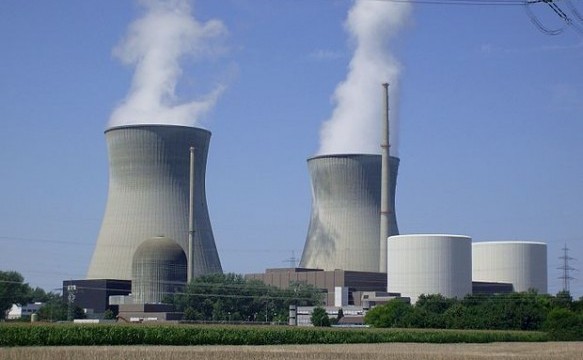The Federal Government has taken a Final Investment Decision (FID) on the construction of $80 bil-lion nuclear plants to be constructed and operated by a Russia nuclear energy firm, Rosatom, it was learnt yesterday.
A shared document between the Nigeria Atomic Energy Commission and the Ministry of Power indicated that the FID was taken after the completion of the Environmental Impact Assessment (EIA) of the sites and the comple-tion of design for the plants.
The sites have been approved, while the design for the financing had com-menced, the document showed. “The agreement with Rosatom gave the company the right to veto the nation doing business with any other nuclear vendor,” the document stated.
Chief Executive Officer of Rosatom, according to the document, has signed a document on financing with the government, which stipulates that the Russian company “will hold a majority controlling stake in Nigeria’s nuclear facility, while the rest will be owned by the country, with roles to be specified in contracts.
The government will enter a powerpurchasing agreement for the nuclear plant.” The plants, according to the document, would be “financed by Rosatom, which will then build, own, operate and transfer them to the government.”
The pilot project, which is the first of the four plants, is to add 1,200 megawatts of capacity by the end of the decade. Neither the Federal Government nor Rosatom has disclosed the specific locations of the sites, but it was learnt that the nuclear plants would be in Akwa Ibom and Kogi states. Both sites are planned to house two plants each.
The first plant is planned to be constructed in Kogi State. Minister of Power, Works and Housing, Babatunde Fashola, had earlier said that Nigeria had secured the necessary certification from the International Atomic Energy Agency (IAEA).
“We have gone through the training level; we have produced 25 graduates of master’s level under certification by the IAEA,” he said. “We have found the sites; the sites have been approved. We have started the design for the financing.
Fashola urged industry players to focus on the gains and safety of nuclear energy, as obtained in other countries. He pointed out that the project will make electricity cheap in the country, stressing that diversifying the nation’s energy mix would lead to the utilisation of the various forms of renewable energy sources in the country.
“We are thinking longterm solutions, solutions that will endure for generations to come,” he said.
Nigeria Atomic Energy Commission Chairman and Chief Executive Officer, Franklin Erepamo Osaisai, who first in 2014 unveiled the talks between Rosatom and Nigeria, said that a joint coordination committee was in place and negotiations are ongoing for financing and contracting.
Nigeria, Osaisai said, signed an agreement with Rosatom to cooperate on the design, construction, operation and decommissioning of a facility in 2012.
Three other nuclear plants are being planned ,which would take total capacity to 4,800 megawatts by 2035, with each facility costing $20 billion. The first Nigerian plant will be operational in 2025.
Compared to coal and natural gas power plants, which discharge carbon dioxide into the air and cause environmental hazards, experts say nuclear energy would not rely on fossil fuels and is not influenced by fluctuations in the prices of oil and gas.
What that means is that the operation and pricing of nuclear energy system will not depend on vagaries of the oil and gas market. However, experts have warned that to achieve this, Nigeria needs to stick to a disciplined regime to manage the nuclear energy system.
They also point to the huge financial demands of the energy system, insisting that countries that had adopted the idea are already scaling down on the use of nuclear technology due to the high cost.













